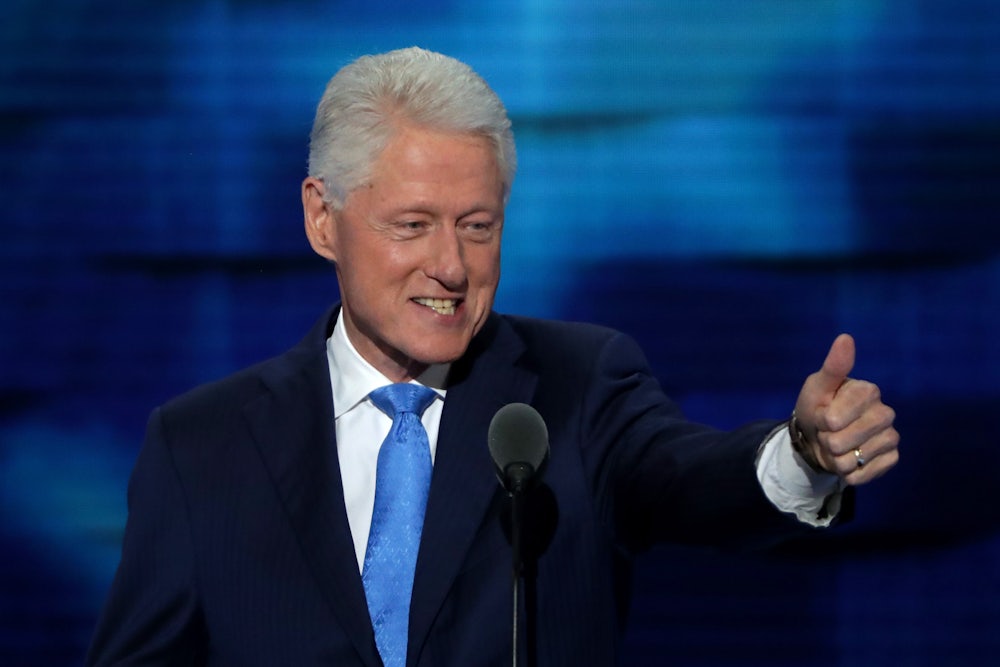Bill Clinton is both Hillary Clinton’s greatest weapon and one of her biggest risks. As a popular former president, he’s in a unique position to vouch for his wife’s ability to serve as commander-in-chief. But bringing the Big Dog of American politics on stage inevitably runs the danger that he’ll steal the show. If the public sees Hillary under Bill’s shadow, then she’ll be diminished and her own presidential prospects dismissed as a continuation of his legendary career.
So it was to Bill Clinton’s credit that even as the featured speaker of the second day of the Democratic National Convention in Philadelphia, he was able to craft a speech where he kept the focus on his wife and used his political capital to persuade voters to overcome their doubts about her.
The speech was heavily autobiographical, lifting passages almost word for word from his 2004 memoir, My Life. Although the material was recycled, Bill was adept at speaking the words in a way that seemed deceptively natural, as if he was a grandfather spinning a yarn about his youthful antics. Bill’s storytelling skills were in the service of humanizing Hillary, showing her to be a strong, independent woman who initially resisted his courtship and who was earnestly engaged in civil rights issues. Hillary was “the best darn change-maker I have ever known,” the former president said.
Biographers might complain that Bill’s portrait of his wife was as slanted in its own way as the hostile portrait painted by the Republicans. In keeping with the revived progressivism of the Democratic Party, he emphasized Hillary’s work in challenging segregated schools and helping to register Mexican-American farm workers to vote. Lost in the telling was the Hillary who supported welfare reform and mass incarceration in the 1990s and voted for the Iraq war in 2003.
But he effectively contrasted his own stories about his wife with the “cartoon alternative” created by Republicans. “How does this [speech] square with the things that you heard at the Republican convention?” he asked. “How do you square it? You can’t. One is real. The other is made up. You just have to decide which is which, my fellow Americans.” He drew a roar of approval as he later concluded, “Today, you nominated the real one.”
Contrary to his reputation, Bill Clinton is not a great speechmaker. Rather, he’s a great persuader. Great speechmakers are those whose carefully crafted words resonate with political and philosophical meaning long after the moments that occasioned them. Abraham Lincoln and Martin Luther King, Jr. were great speechmakers. Barack Obama is one of the few contemporary figures in that league.
Bill Clinton’s use of political rhetoric is in a different and more practical key. He’s gifted at suasion and litigation. He deploys stories and arguments to win over the audience on specific points, rather than on grand issues. But his talent shouldn’t be dismissed. In 2012, he used his formidable skills to help sell Obama’s re-election. On Tuesday night, the same skills were brought to the task of making Hillary seem real again.
